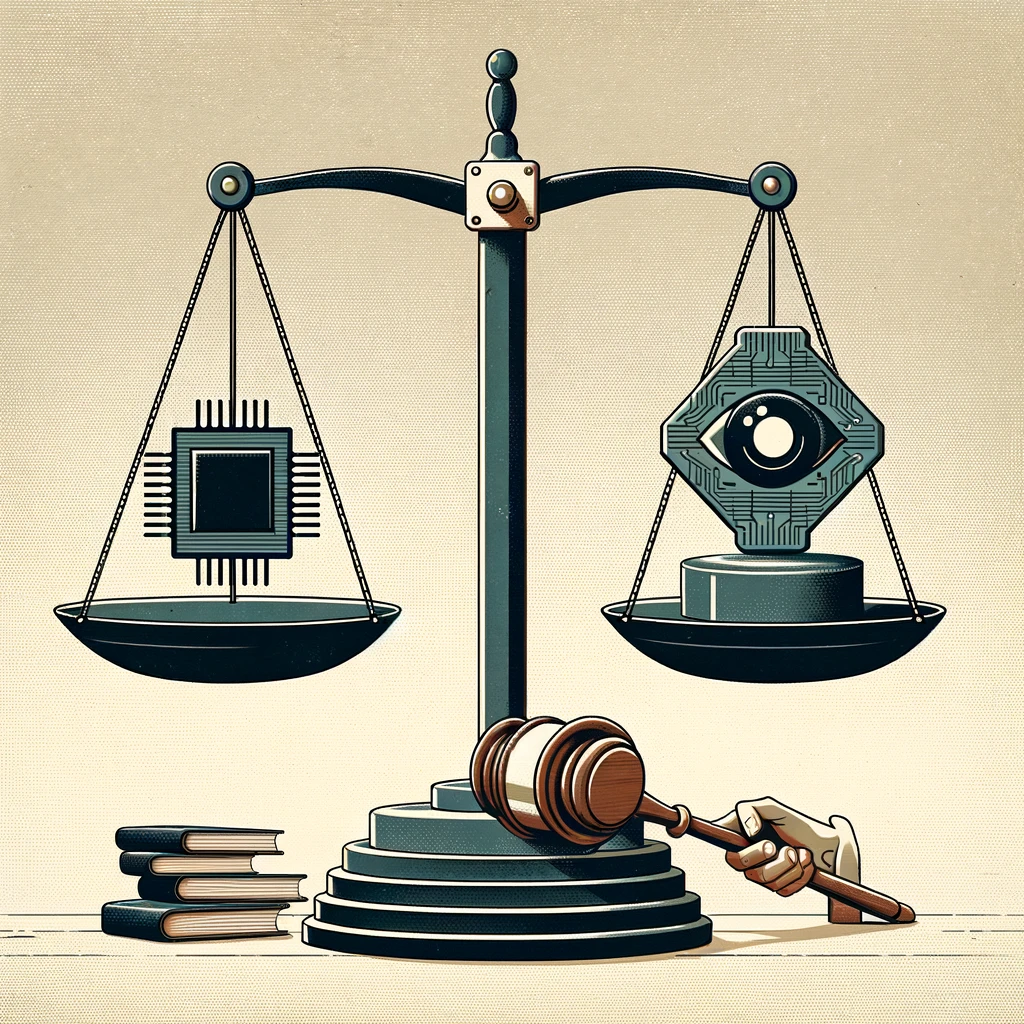Strengthening AI Regulation: Insights from IT Professionals

Strengthening AI Regulation: Insights from IT Professionals
In an era where artificial intelligence is becoming increasingly integral to business operations, a recent survey conducted by SolarWinds reveals a striking consensus among IT professionals: a robust call for enhanced government regulation of AI technologies. With a compelling 88% of respondents advocating for tighter oversight, the survey sheds light on the pressing concerns regarding security, privacy, and the ethical implications of AI. Security emerged as the top priority, with 72% of IT experts emphasizing the necessity for measures to safeguard critical infrastructure. Furthermore, a noteworthy 64% of participants highlighted the urgent need for improved privacy protections.
The findings arrive at a significant crossroads, coinciding with landmark AI legislation developments in the EU and the UK, as well as various legislative actions in the US. Beyond regulatory concerns, the survey reveals deeper issues, such as a pervasive mistrust of data quality, which hinders AI integration and adoption.
This article will delve into the survey’s critical insights, exploring the challenges faced by IT professionals and the imperative for stronger regulatory frameworks to ensure a safe and effective AI landscape.
Understanding the Call for Enhanced AI Regulation
The increasing pervasiveness of artificial intelligence (AI) in business operations has prompted urgent discussions around the need for more stringent regulations. The results of the SolarWinds survey make it clear that IT professionals are acutely aware of the risks and challenges posed by AI technologies. With a remarkable 88% of participants advocating for stronger government oversight, it is essential to understand what drives this demand and what regulations might look like.
Key Reasons for Stronger AI Regulation
Security, privacy, and ethical considerations are at the forefront of IT professionals’ concerns. The survey found that 72% of respondents pointed to security as their top priority, indicating a palpable fear that AI systems may be exploited to undermine critical infrastructure. Coupled with this is the pressing need for robust privacy regulations, with 64% of respondents believing that current measures are insufficient to protect sensitive data. These insights reflect an industry grappling with the implications of increasingly autonomous systems.
The Ethical Imperative
As AI systems become more complex, ethical implications grow correspondingly. Nearly half of the survey participants (50%) endorsed regulations designed to ensure ethical AI development practices. This represents a collective acknowledgment that AI should not only function effectively but should also adhere to principles that promote fairness, accountability, and transparency. In an age where AI-driven decisions can significantly impact individuals and communities, embedding ethical standards in AI frameworks has never been more critical.
The Intersection of Regulation and AI Integration
The survey results arrive at a pivotal moment, overshadowed by evolving AI legislation in various regions, including the EU’s AI Act and proposed regulations in the UK and California. This climate of heightened regulatory scrutiny mirrors the urgent need felt by IT professionals for a safe environment in which AI technologies can thrive.
The Role of Government in AI Mitigation
The responsibility of mitigating the risks associated with AI does not rest solely on organizations but falls significantly on government bodies. With 55% of survey participants asserting the need for governmental intervention to combat AI-generated misinformation, it is clear that IT professionals are calling for a proactive approach from regulatory authorities. Potential strategies may include introducing clear guidelines on AI usage and enhancing the capacity for monitoring systems to prevent misinformation spread.
Trust in Data Quality: The Foundation for AI Success
In addition to regulatory concerns, a significant barrier to AI adoption has emerged: trust in data quality. Shockingly, only 38% of respondents felt ‘very trusting’ of the data quality used in AI systems. This skepticism could hinder the successful implementation of AI technologies, as poor or biased data can lead to inaccurate models and decision-making failures. IT professionals recognize that high-quality, unbiased datasets are crucial for building dependable AI solutions.
Organizational Preparedness for AI Challenges
The implications of the survey extend beyond simple regulatory needs; they highlight the broader challenges organizations face in adapting to the AI landscape. A notable statistic from the survey revealed that only 43% of IT professionals are confident in their organizations’ readiness to meet the growing data demands associated with AI. This lack of preparedness can stifle AI integration and adoption, underlining the need for businesses to bolster their data management practices.
Identifying and Overcoming Data Quality Issues
Given the alarming findings regarding data trust, organizations must prioritize data hygiene and quality control measures. Ensuring consistent monitoring and cleansing of data can mitigate integrity issues and help build confidence among stakeholders. Moreover, collaborating with trusted data providers can also serve to enhance the overall quality of the datasets used in AI systems. Engaging in these proactive measures is essential for fostering an environment conducive to success.
The Future of AI Regulation and Integration
As legislation continues to shape the AI landscape, organizations and IT professionals alike must strategize around the evolving regulatory environment. Developing suitable frameworks that promote compliance while allowing for innovation will be a delicate balance to strike. Engaging in continuous dialogue with regulatory bodies can facilitate more adaptive regulations that evolve alongside technology.
The Broader Implications for Society
AI regulation extends beyond technical considerations—it has societal implications as well. The findings from the SolarWinds survey indicate a growing awareness of the potential misuse of AI and its societal impact. As IT professionals advocate for stronger regulations, they also highlight the necessity for public discourse around the ethical implications of AI technologies. Ensuring transparency in AI applications can bolster public trust and promote responsible innovation.
Fostering a Culture of Responsible AI Development
Organizations must recognize that building a responsible AI culture requires more than compliance with regulations—it demands a fundamental shift in mindset. Training employees on ethical considerations, fostering an environment for open discussions about AI ethics, and establishing cross-disciplinary teams can elevate a company’s commitment to responsible AI usage. It is crucial for organizations to be leaders in ethical AI to enhance their reputation and build trust with their clients and stakeholders.
Building Collaborations for Better AI Practices
To address the multifaceted challenges associated with AI adoption and regulation, fostering collaboration between the private sector, academia, and government entities is essential. Collaborative efforts can lead to the development of better policies that take into account the nuances of technological advancements while prioritizing public interest. By working together, various stakeholders can create frameworks that not only enhance AI regulation but also serve the broader societal good.
The findings from the SolarWinds survey illustrate a sector grappling with the future of AI. As calls for increased regulation and better data practices gain momentum, the conversation around AI’s role in business continues to evolve, highlighting the importance of collaboration, trust, and ethical responsibility. The journey toward a robust AI landscape is just beginning, and it is imperative that all stakeholders work together to navigate the challenges ahead.
Embracing a Responsible Future for AI
The pressing need for enhanced AI regulation, as underscored by the insights from IT professionals, marks a crucial turning point in the technology landscape. With overwhelming consensus on the importance of security, privacy, and ethical considerations, it is evident that a collaborative approach is vital for cultivating a trustworthy AI ecosystem. Organizations must prioritize data quality, transparency, and employee education to support responsible AI practices while aligning with evolving legislative frameworks.
As AI technologies continue to permeate various sectors, stakeholders must engage in ongoing dialogues that address both regulatory challenges and public concerns about AI’s societal impact. By fostering cross-disciplinary collaborations, businesses can create a culture of accountability and trust, ensuring that AI advancement serves the greater good. The journey toward a robust AI landscape is a collective effort that calls for commitment and innovation from all stakeholders as society navigates the complexities of artificial intelligence.















































































































